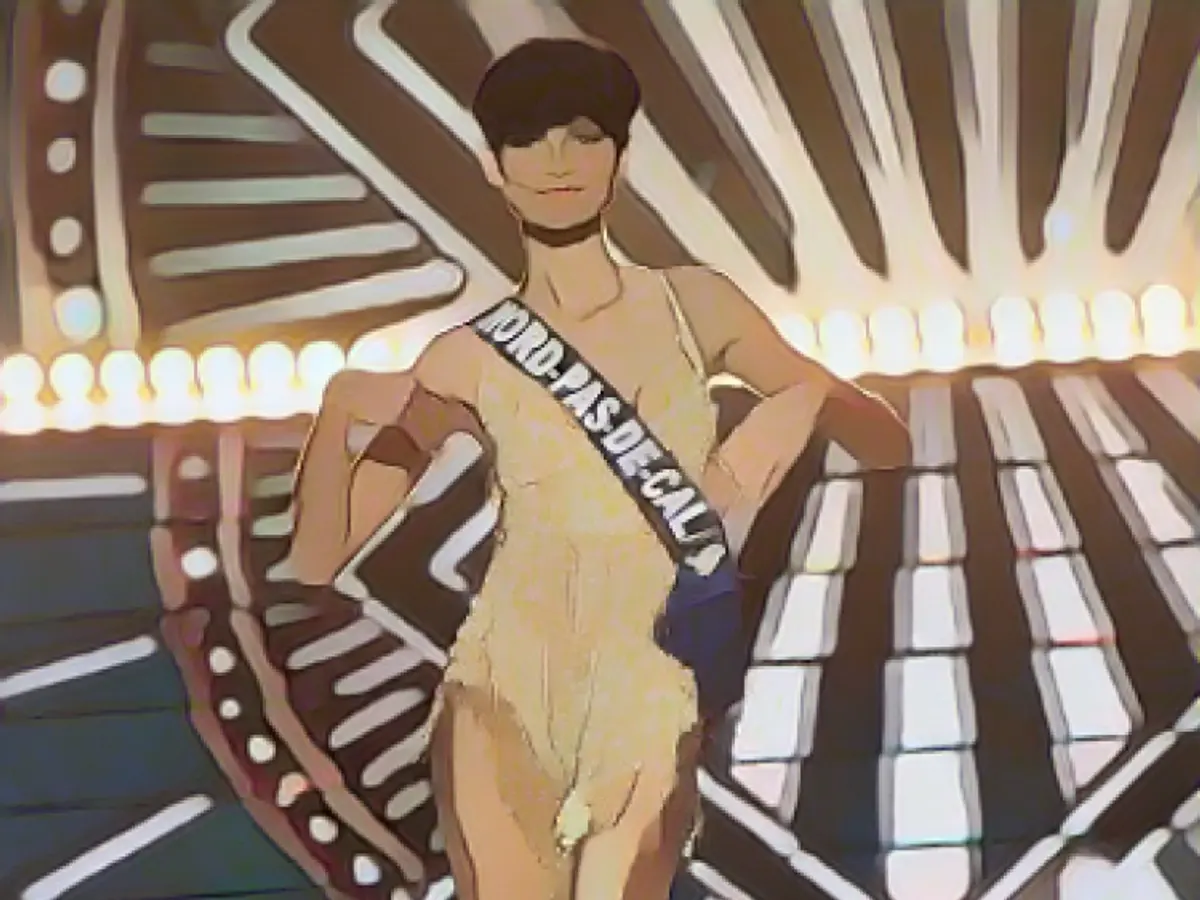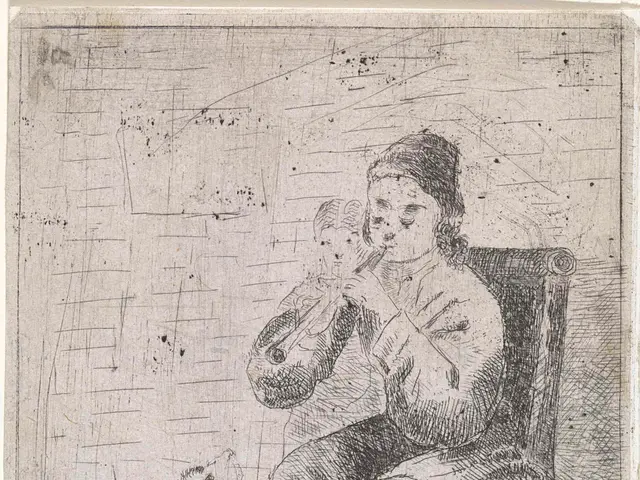France's Pageant Turmoil Over Short-Haired Winner
The unifying power of beauty pageants has been put to the test in France, as the recent victory of 20-year-old Eve Gilles stirs up controversy and heated debates. This year's Miss France competition has sparked a nationwide conversation, dividing France into supporters and critics of the new titleholder.
With eyes on the screen, 7.5 million French TV viewers tuned in to witness the crowning of Miss France. Initially, the public vote placed Gilles in third place, but when judges' votes were taken into account, she emerged victorious, snatching the title from the favored contenders.

The victory has sparked an intense debate, largely due to Gilles’ unconventional hairstyle. As the first Miss France to win with short hair in over a century, she has invited a unique and controversial dichotomy.
On social media, dissenting voices accused Gilles and the jury of promoting "woke values," claiming that she doesn't embody the classic image of a "Miss France." Other critics went as far as criticizing her "androgynous" appearance, associating it with "wokeness."
Female politicians join the fray
It wasn’t long before famous French politicians joined the debate. Green politician Sandrine Rousseau passionately denounced the discriminatory comments about Gilles, remarking that her victory was a ludicrous association of short hair with wokeness.
Eve Gilles received support from politicians like Karima Delli, an MEP for the French Greens, who pledged her full support to the triumphant new Miss France.
Marine Le Pen, the right-wing populist candidate, even refused to add her voice to the criticism of the competition, congratulating Gilles diplomatically. Gilles, herself a student of mathematics and computer science in Lille, remained unphased, responding with self-assuredness throughout the controversy.
"Beauty has no boundaries."
Gilles continues to radiate self-confidence even amidst the widespread criticism. The young beauty queen stands firmly by her decision to flaunt an unconventional androgynous look with her short hair. “I wish to portray a changing world and represent diverse female beauty,” Gilles declared, stressing that "beauty does not rely on hair length or figure."
Indeed, public opinion about the controversial Miss France will undoubtedly continue to shape the ongoing debate about beauty standards and inclusivity, prompting further discussions regarding representation within the entertainment industry.
Reference(s):
Enrichment Data:
- Indira Ampiot, the titular Miss France, has faced allegations of her eligibility, specifically that she changed her address to participate in the Miss Angola UK pageant that only accepts Angolan women living in Britain.
- Miss France, a top-10 finalist in the Miss Universe Pageant, has criticized Indira Ampiot’s win and the location of the pageant, suggesting that it played a significant role in her victory.
- The Miss France pageant has rule differences from other beauty pageants, including strict rules against cosmetic surgery or appearance-altering products, further fueling the debate on beauty standards and inclusivity.
- Beauty pageants like Miss France have continually attracted criticism for promoting traditional beauty standards that may be seen as exclusive, and the Miss France controversy highlights this tension between conventional beauty and modern notions of inclusivity and diversity.
Gilles' victory has ignited a conversation about beauty standards in beauty pageants, creating a significant divide among the French public. Harnessing self-confidence and staying true to her androgynous look with short hair, she stands as a beacon for broader progress and discussions around beauty and inclusivity.








